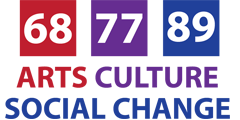Module 1: 1968
Synopsis
The 1968 Prague Spring was a period of political liberalization in Czechoslovakia during the era of its domination by the Soviet Union after World War II. It began on 5 January 1968, when reformist Alexander Dubček was elected First Secretary of the Communist Party of Czechoslovakia (KSČ), and continued until 21 August 1968 when the Soviet Union and other members of the Warsaw Pact invaded the country to halt the reforms. After the invasion, Czechoslovakia entered a period known as “normalization“: subsequent leaders attempted to restore the political and economic values that had prevailed before Dubček gained control of the KSČ. Gustáv Husák, who replaced Dubček and also became president, reversed almost all of Dubček’s reforms. The Prague Spring inspired music and literature such as the work of Václav Havel, Karel Husa, Karel Kryl, and Milan Kundera‘s novel The Unbearable Lightness of Being.
Sources and Outcomes
In Module 1, students will examine life in Czechoslovakia under communism and the subsequent 1968 invasion by the Soviet Union. The NCSML has selected primary and secondary sources that provide teachers and students with a rich collection of political, social, economic, and cultural perspectives across four designed activities.
Each activity is centered on a compelling question that invites students to construct their understanding, ask additional questions about the past, and apply their thinking to the contemporary world. In order to support these outcomes, teachers will find an array of instructional strategies and processing routines you can utilize and adapt for students. Additionally, a variety of performance tasks supporting students’ deep content understanding and develops skill sets usable beyond the classroom provide authentic contexts for the demonstration of meaningful learning.

